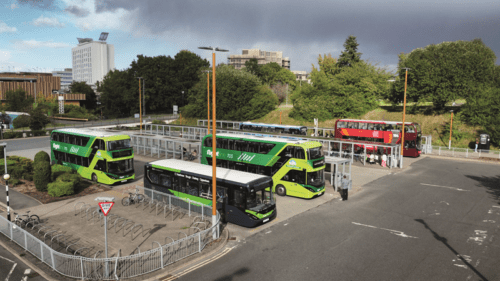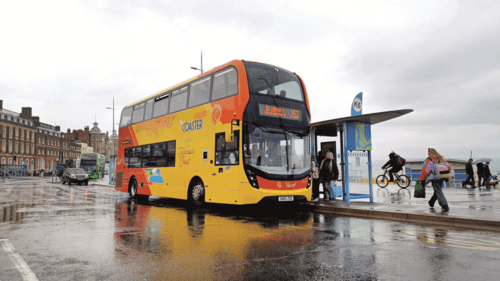
The Government has promised more than £955m in extra funding to support buses and bus services by keeping fares low and improving reliability
Transport Secretary Louise Haigh MP has announced a package of funding which it says has been earmarked to support bus services in England until 2026.
Billed as a further step in the Government’s mission to deliver growth across the UK, the Transport Secretary has confirmed the allocation of £712 million in funding for local authorities to improve bus services, and a further £243 million for bus operators by way of what it says is a long-standing grant to keep fares lower and services more frequent than they would otherwise be.
The Government promises that every region in England will benefit from the funding, but particularly those areas which have been historically under-served, such as rural areas and small towns, and that it will mean more urban areas will be able to maintain their high levels of service whilst other areas will be able to make improvements.
Totalling £955 million, the funding is said to represent a record level of investment, alongside ‘once-in-a-generation’ reform to bus services. Areas receiving funding include Leicester, the Isle of Wight, Torbay, and Cambridgeshire & Peterborough.
As part of the investment, the Government says that the way funding is allocated has been reformed, meaning it will be allocated based on need, levels of deprivation and population, helping to stop areas competing for funding as in previous years, wasting resources and delaying decisions.
Transport Secretary Louise Haigh said: “Buses are the lifeblood of communities, but the system is broken. Too often, passengers are left waiting hours for buses that don’t turn up – and some have been cut off altogether.

That’s why we’re reforming funding to deliver better buses across the country and end the postcode lottery of bus services.
“And it’s why we’re providing over £1bn of funding to keep fares down, protect local routes and deliver more reliable services. This is part of our wider plan to put passengers first and give every community the power to take back control of their bus services through franchising or public ownership. By delivering better buses, we’ll ensure people have proper access to jobs and opportunities – powering economic growth in every corner of the country.”
Some of the biggest allocations for urban areas are to be given to combined authorities representing South Yorkshire (£17 million) and Liverpool City Region (nearly £21 million), while councils covering rural areas have also been allocated large allocations, including Lancashire (£27 million), Kent (£23 million), Essex (£17 million) and Norfolk (£15 million) county councils.
The £955 million follows on from £150 million which has already been committed to cap fares in England at a maximum of £3 until the end of next year, with an inflationary limit also set to ensure that other fares are not automatically increased to £3.
Alison Edwards, Director of Policy and External Relations at the Confederation of Passenger Transport said: “Buses are vital to economic growth – they carry ten million passengers a day. This funding is a valuable investment in journeys that help people to earn, learn and spend in local communities. It is encouraging to see that the funding will be shared across every English region. Bus operators look forward to working with local authorities on plans to speed up services, improve co-ordination and enhance frequencies.
“Bus passengers deserve a fair funding deal. Every pound of public money invested in buses delivers a return of more than £4 in benefits to the environment, to public health and to communities.”

